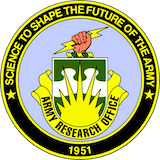Intro
Quantum information science has evolved in the last 20 years from the status of gedanken experiments questioning the foundations of quantum mechanics into a now rapidly evolving field attracting physicists, engineers, computer scientists and mathematicians. It is now understood that quantum computers could solve more efficiently than classical computers certain classes of problems, such as those arising in machine learning and in quantum simulations of new molecules and materials. The quantum computer particularly excels in the problems that are usually attacked by Monte Carlo algorithms: whereas in a classical computer random numbers have to be drawn first from an ensemble and then passed to a deterministic function, a quantum information processing machine can interchange the stages of calculation and random sampling. Quantum information also plays an important role in sensing applications: the signals in gravity wave antennas, dark matter search experiments and telescopes looking at exoplanets, all start as quantum signals and need to be processed in a way that does not allow quantum fluctuations to diminish the signal to noise ratio.
Yet, despite the hopes generated by the rapid progress of quantum information implementations, a fundamental physics problem remains: quantum information is extremely fragile compared to classical information. Every qubit is severely attacked by decoherence processes, which limit the number of operations it can perform before losing its quantum superposition or entanglement with other qubits. The invention of quantum error correction algorithms by Peter Shor in 1995 launched a new sub-field of quantum physics: the exploration of how one can protect quantum information from decoherence by collective effects in an open quantum system. Today, this topic is at the forefront of the design of quantum information machines.
The school aims at providing participants with a clear picture of the tools at our disposal to engineer these machines with a focus on quantum error correction. It will assemble speakers known for their clarity, who will be strongly encouraged to insist on introductory and overview material rather than over-specialized topics.
Registration deadline: March 1, 2019
Organizers
Michel Devoret, Yale University (USA)
Benjamin Huard, Ecole Normale Superieure de Lyon (France)
Ioan Pop, Karlsruhe Institute of Technology (Germany)
People at Les Houches
Chistophe Salomon, Director
Anny Glomot, Administrative director
Murielle Gardette, Administrative assistant
Isabel Lelievre, Secretary


